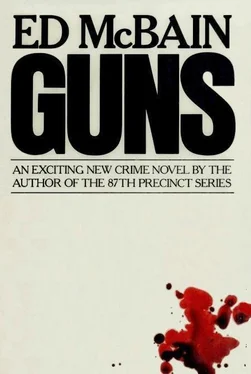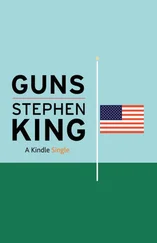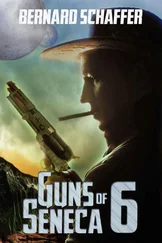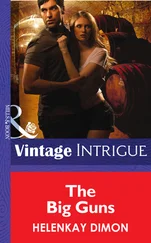The assistant district attorney prosecuting the case was of Hispanic heritage, just like his client Luis Josafat Albareda; Colley learned Macho’s real name only after he’d shot him. The assistant D.A. told Colley’s lawyer that whereas criminal law was most assuredly the bargain basement of the legal profession, he would not allow Colley to cop a third-degree assault plea, not when a weapon was involved, not when a .25-caliber pistol had been used to shoot poor Luis Josafat in the throat, causing him to lie bleeding in the snow for three hours without proper medical attention — that was because Colley had planned his ambush well, catching Macho in a deserted alleyway that ran between two apartment houses.
“Hey! Macho!”
Macho turned and was already reaching for his blade when Colley opened up. He fired twice. The first shot missed him. The bullet hit the alleyway wall and sent a piece of brick flying into the air, and then went ricocheting, zing, zing, zing, and Colley pulled off the second shot and blood began spurting out of Macho’s neck.
The assistant district attorney argued that poor Luis Josafat had lost part of his larynx because of the shooting, and now spoke through a voice box — “this fine boy who is only seventeen years of age will have to go the rest of his life in this handicap position,” the assistant district attorney said, sounding very much like Pancho Villa, and actually getting a laugh from Colley’s attorney, who quickly covered his mouth with his plump little hand. When it was pointed out to the assistant D.A. that poor Luis Josafat was a kid who’d himself been arrested many times for crimes ranging from possession of narcotics to attempted rape to burglary to assault, the assistant D.A. decided to forsake Hispanic fealty in favor of job security, and promptly agreed to the lesser charge.
The judge was Italian; that didn’t hurt either.
“Colley? Is that you?” the voice said.
He stopped stock-still in the center of the sidewalk.
“Colley?” she said.
“Yes?”
“Colley?”
It was getting to be like one of his grandfather’s operas. All right already, he thought. It’s Colley. So who the fuck are you?
“Terry,” she said.
He looked. Tires hissed against the rain-slick asphalt.
“Terry,” she said again.
In the neon stillness, steam escaped from a curbside sewer. Jesus Christ, he thought. She looked... Jesus Christ. The last time he’d seen her was four years ago... was it five? The year before he got busted for armed robbery when the fuck was that? How could he forget the year, the month, the day, the exact hour and minute, the squad car pulling to the curb as he ran for his own car, “Hold it, motherfucker,” nice language for a police officer. “Hold it!” and they threw him up against the wall, and tossed him, and one of them found the pistol where he’d thrown it in the gutter the minute he heard the cop yelling at him. Four years ago this September eleventh. And a year before that, Teresa Brufani had left for Vermont. She’d been twenty at the time, he’d been twenty-four. He looked at her now. He knew she was Terry, she had just told him as much. Otherwise, he would not have known her.
He remembered her hair as brown and soft; he would cradle her face in both hands, and she would lean over him and her hair would cascade over his own face, and she would bend her lips to his. The hair was blond now, clipped close to her head in a mannish cut. Huge gold earrings on her ears. Blue eyeshadow on her lids, lipstick gash on her mouth. She had never worn makeup when he’d known her years ago, not even lipstick.
She was wearing a black trenchcoat, the collar high on the back of her neck, the belt pulled tight at her waist. She had on platform shoes that easily added two inches to her height; he felt short in her presence when always before he had felt much taller. She was smoking a cigarette, and she dropped it to the sidewalk at once, and stepped on it even though it hissed out immediately against the wet pavement. He remembered that once, long ago, he had objected to her smoking, and she had given it up for him. He himself smoked two packs a day. But she had given it up for him. He remembered everything about her in that instant.
“Hello, Terry,” he said.
They stood some four feet apart from each other, looking at each other, the steam from the sewer drifting across the sidewalk between them. They had been intimate for close to three years, and then she had gone to Vermont, and he had continued doing what she said she could not bear, and eventually he’d got busted for doing it. Seven years, the judge had said. Tough shit, next case. Now they stood four feet apart from each other on the sidewalk, five years apart, a century apart. They would not touch, they would not move toward each other, they stood looking at each other like strangers, which they were, looking at each other through the steam.
“Hey,” she said.
“How you doing?” he said.
“Great,” she said. “Great.”
“I thought you were in Vermont.”
“No.”
“That’s what I thought.”
“I’ve been back since May.”
“Well,” he said.
“Boy,” she said, “running into you like this.”
“Yeah,” he said.
“You want to buy me a drink, or...”
“Yeah, sure,” he said, “sure.”
“Or you want to just stand here all night?”
“No, yeah, I want to buy you a drink. Hey, how about this, huh?”
He took her by the elbow and they walked up the street to the Blue Moon. There were three black dudes on the sidewalk, they looked Terry up and down. This was the old days, Colley’d call the Orioles out, those fuckin niggers’d be in the hospital in a minute. He gave them a dirty look. One of the niggers laughed as though his buddy had cracked a joke. Colley gave him another dirty look, and he turned away. Inside, the juke box was going. A rock song, Colley didn’t recognize the tune or the group. You grow up, you don’t know who’s playing what any more. There was a mixed crowd in the place — white, black, a few Puerto Ricans. Colley found a booth too near the kitchen and too near the juke.
“This okay?” he said.
“Yeah, sure,” she said.
“It ain’t too near the kitchen, is it?”
“No, no, it’s fine.”
“Cause I hate cooking smells,” he said.
“Yeah, but I don’t see anything else, do you?”
“No,” he said.
“So fine,” she said, and grinned, “What’re we gonna do? It’s the only game in town.”
“Right,” he said, and returned the grin, and helped her out of the coat. He was surprised at what she was wearing underneath. She was dressed like for a party. One of those clinging synthetic fabrics, cut very low in the front and high on the knee, scalloped edge to the skirt, long sleeves. Green.
“You been out?” he said.
“Huh?” she said.
“You’re all dressed up.”
“Oh. Yeah,” she said.
He hung up the coat, and they sat opposite each other in the booth. Colley looked around for a waiter. A black guy was leaning against the juke box, looking over the selections. In the booth across the aisle, a black girl was sitting with two black dudes. She waggled her fingers at Terry, and Terry waggled her fingers back.
“Who’s that?” Colley asked.
“Friend of mine,” Terry said.
“You living around here now?”
“Yes,” she said.
“How was it up there in Vermont?”
“It was pretty good.”
“So why’d you come back?”
“I got tired of it.”
“What were you doing up there, anyway?” he said, and tried to catch the waiter’s eye.
“We had a shop,” Terry said.
“Who’s we?”
Читать дальше










